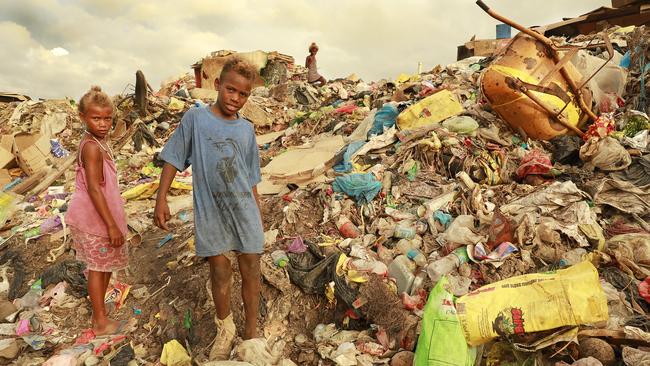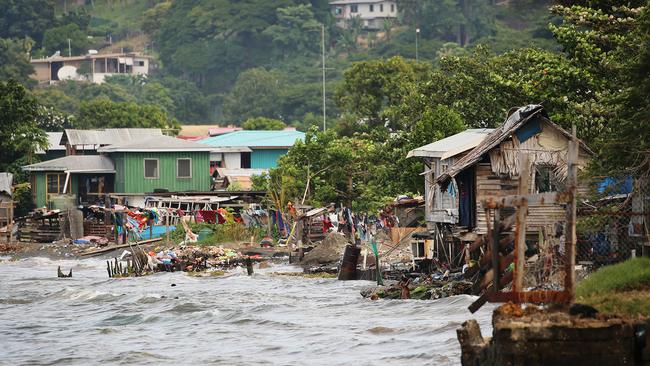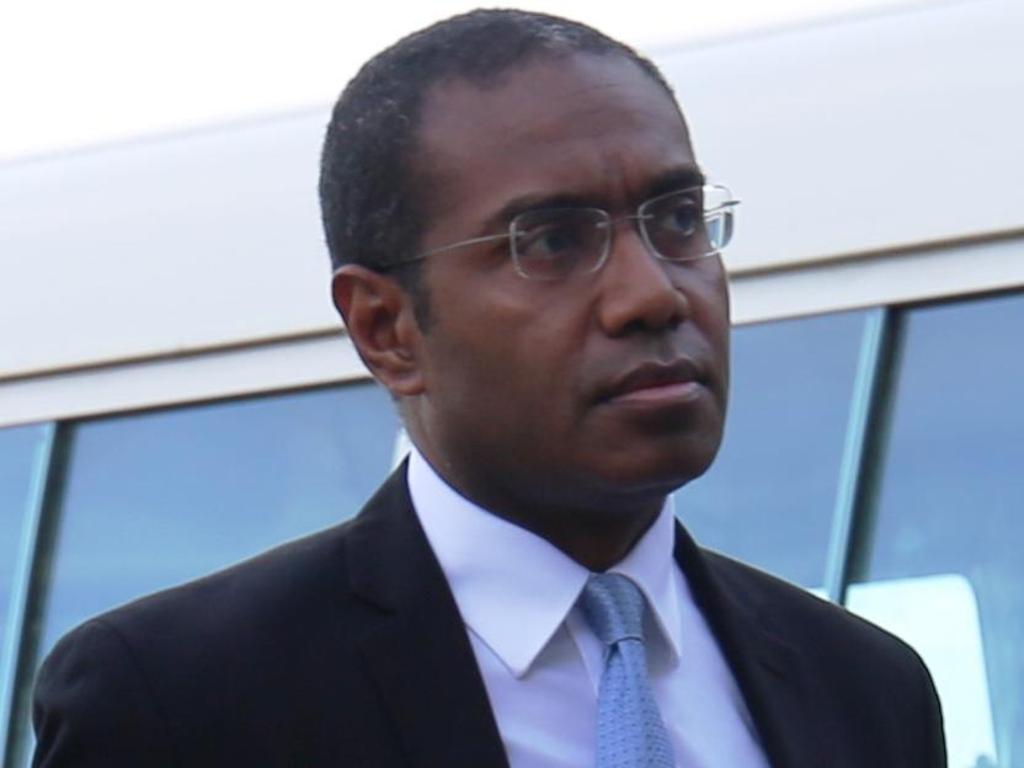Millions in aid but home is still the tip in Honiara
Australia spends $200m a year on aid to the Solomon Islands but that’s failed to stop children living in the capital’s rubbish tip.

Australia is spending almost $200m a year on aid to the Solomon Islands but that’s failed to prevent children living in the capital’s rubbish tip.
A major campaign to move families from the tip in Honiara at the start of the Australia-led regional assistance mission failed within months.
More than a decade later the rubbish and sanitation problems on Guadalcanal have escalated.
Honiara residents say the desperate conditions are a major reason why many are happy to turn to China in the hope of greater infrastructure spending.
Department of Foreign Affairs and Trade figures show Australia’s aid effort to Solomons has been cut from $187m in 2018-19 to $174.4m this year.
Much of the funding is for roads, governance and law and order, with gender equality set as a major priority. Other “issues include climate change and disaster resilience, gender equality, empowering women and girls”, DFAT said.
When The Australian visited Honiara this month more than a dozen children and their parents were camped out in a cardboard shanty town among the refuse at the top of the city’s major rubbish dump. Nearby, on the city fringe, children were swimming amid tonnes of plastics and other rubbish, including soiled nappies, at the mouth of a major river.
Only kilometres away, Australia’s high commissioner lives in a four-bedroom, $10,000-a-month hilltop home with tennis court and views over the islands.
Rex Iro, 42, said he had nine children living with him on the “other side” of the rubbish mountain. He was moved out of the tip during the Australian-led campaign in 2006 but said he had returned immediately to make money from scavenging metal. He said the children were happy to be there.

Dick Wilmot was the captain of the MV Renbell barge used to ferry people from the dump to the neighbouring Malaita island province.
“They were given chainsaws, fuel and roofing iron”, Mr Wilmot said. “The plan was for them to go home and cut timber and build houses and stay there, but they came back.
“The way I look at it is there wasn’t much consultation. They just left everything or sold everything and came back.”
Mr Wilmot said there had been no recent attempts to return them to Malaita.
The tip is managed by the Honiara city council with advice from Australia.
-
This series is supported by the Judith Neilson Institute for Journalism & Ideas
MORE FROM THE DIASPORA PROJECT: Overseas Chinese have mixed feelings about Hong Kong’s fate under Beijing’s rule | A tale of two Chinas | Winning over the locals is difficult business
-
Currently there is a push to ban single-use plastic bags in Honiara but a lack of running water means demand for plastic bottles of drinking water is enormous.
A lack of rubbish collection outside the immediate capital forces villages upstream to dump refuse in rivers, which then washes down into the ocean.
Villages have been told not to bury garbage because of land ownership concerns and not to burn it because of toxic emissions. As a result, bags of rubbish are routinely tossed into the waterways.
DFAT said Australia’s aid program “supported Solomon Islands’ work to address the country’s significant human development challenges”.
The department said waste management continued to be a significant challenge in the Pacific region.
“Pacific countries have limited land available for waste management, and are far from recycling markets,” DFAT said.
“Australia is investing in regional initiatives to address the Pacific waste management challenges, in collaboration with international partners and experts.”
The first priority for Australian aid in the Solomons was a unified nation with a stable and effective governance, and public order.
The second priority was sustained and inclusive economic growth.
The third was to ensure Solomon Islanders have access to quality social services, including education and health.
At last year’s Pacific Island Forum, Prime Minister Scott Morrison promised $16m to the Pacific Ocean Litter Project designed to support Pacific Island nations reduce their dependence on single-use plastics.
The funding will last through to 2025.




To join the conversation, please log in. Don't have an account? Register
Join the conversation, you are commenting as Logout